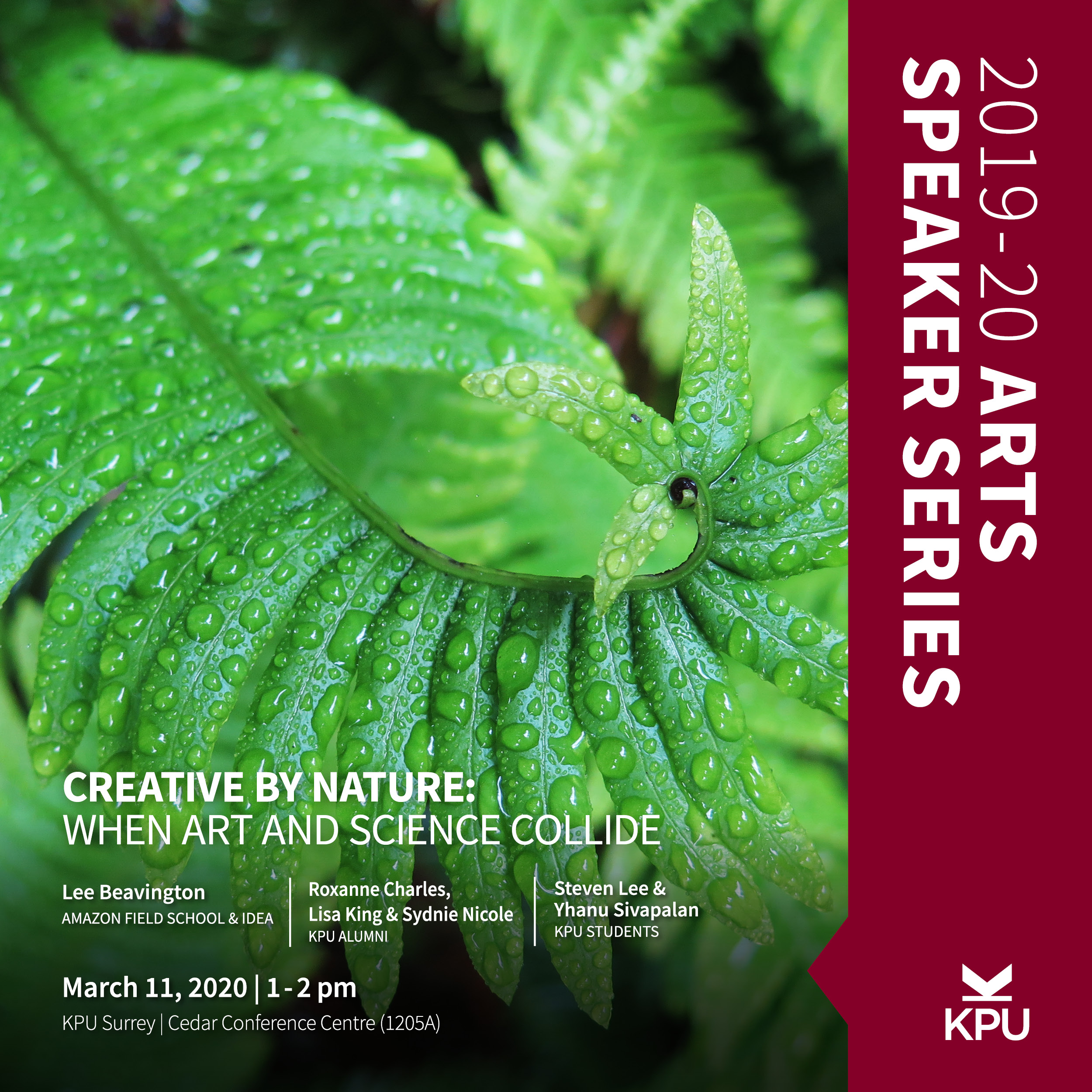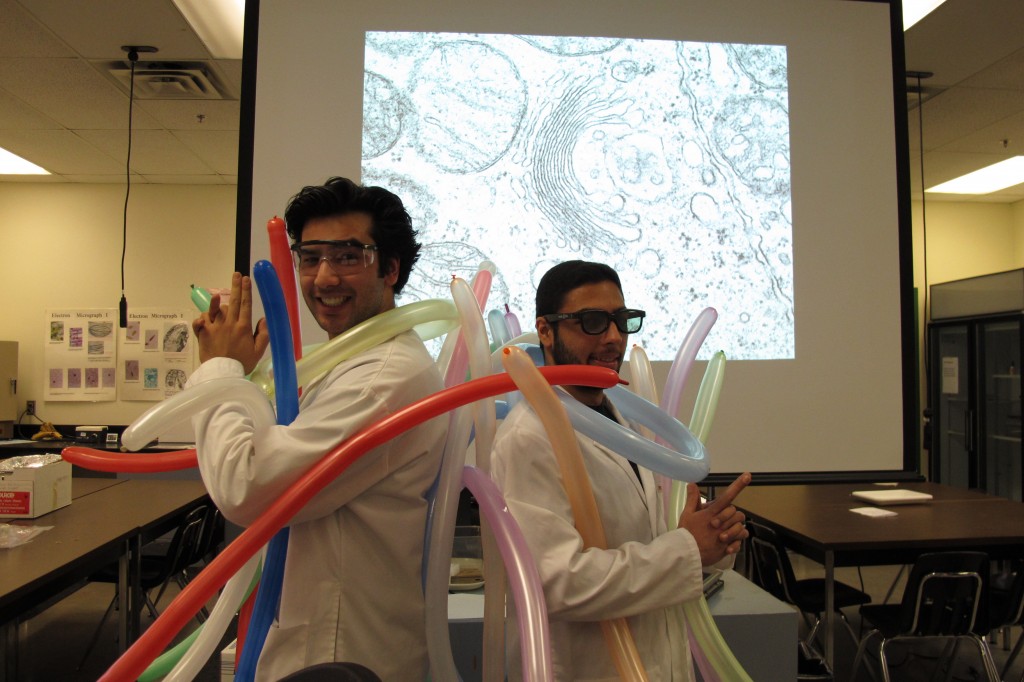
More details here:
https://www.kpu.ca/arts/speakerseries


More details here:
https://www.kpu.ca/arts/speakerseries
Design your own place-based, cross-disciplinary session (with Daniella Roze)
Classrooms to Communities: Connecting People, Place and Planet
October 25, 2019
UBC
More info here
Discovery Day Biology Lab Tour (with Christine Takhar)
Surrey Professional Development Day
November 8, 2019
Kwantlen Polytechnic University
More info here
Poetry Reading
White Rock & Surrey Writers’ Club
The Cecilia Lamont Literary Contest
7pm, November 20, 2020
White Rock Library
Poetry Circle
President’s Dream Colloquium event
November 29, 2019
W.A.C. Bennett Library Room 7100
Simon Fraser University
More info here
Where the Sidewalk Ends (with Michael Maser) – CANCELLED
President’s Dream Colloquium event
12-1:15pm (meet at Georgia & Denman bus stop, north-side)
December 4, 2019
Vancouver, BC
More info here
Poetry Reading (for Landscape|Interrupted Gallery Opening by Bad/Good)
President’s Dream Colloquium event
Conduit Gallery: 165 East Hastings
December 5, 2019, 7-9pm
More info here
Creative by nature: When art and science collide
KPU Arts Speaker Series
March 11, 2020, 1-2pm
Cedar Conference Center
Kwantlen Polytechnic University, Surrey, BC
More info here
Healing nature: Forest bathing and the wisdom of trees
KPU-Science World Speaker Series
June 9, 2020 POSTPONED
Science World Vancouver
More info here

Students dress up as a Golgi apparatus for their biology presentation.
In the cell biology lab, I decided to scrap the pre-lab quiz one week and have students do brief presentations. Each partnership chose one electron micrograph to present. I gave some basic guidelines and encouraged them to be creative.
That day, our class awaited the arrival of two students. Their tardiness was quickly forgotten as they came through the door, dressed in full lab coats and covered in twisting balloons (the ones used to make balloon animals). Collectively, they embodied a living, walking Golgi apparatus.
Meanwhile in the genetics lab, students were presenting meiosis. …
I recently took a large group of university students in first-year biology for a forest field trip. At the outset, I inquired as to how often they walked along a wooded path. A few liked to take their dogs on the trails, yet the vast majority (over 90%) had never, in their life, gone into the forest. I was astonished.
As a child, I made regular sojourns into the neighborhood wilderness. Whether it be the park or ocean down the road, the local trails by the stream, or simply the small wooded area of our backyard, I lost myself in adventures of the imagination fuelled by being outside. I found it hard to fathom that these young adults had abandoned the great gift of hiking. Or perhaps, more precisely, that their upbringing had never exposed them to this experience. …
Something wonderful happened in the biology lab this past semester. Stressed students began to laugh. The shy felt comfortable asking questions. They sometimes challenged my explanations. This spurred curious debate and conversation, and a willingness for us both to explore beyond the lesson plan. I shifted from a teacher of content to a facilitator of learning.
Post-secondary teachers are trained to be experts in their field. Yet how do we provide a suitable framework for learning? Many instructors, including myself, are put before students with scant preparation, our only model the example by which we were taught. Knowing the photosynthetic chloroplast mechanism in intimate detail may be important; understanding the best method for engaging students with this complex organelle is vital.
Students complain that their classes are boring, that teachers teach from the book, that they are overwhelmed by essays and exams. They complain because they are not inspired. The central role of the educator is to provide an enriching—and perhaps transformative—learning experience. …